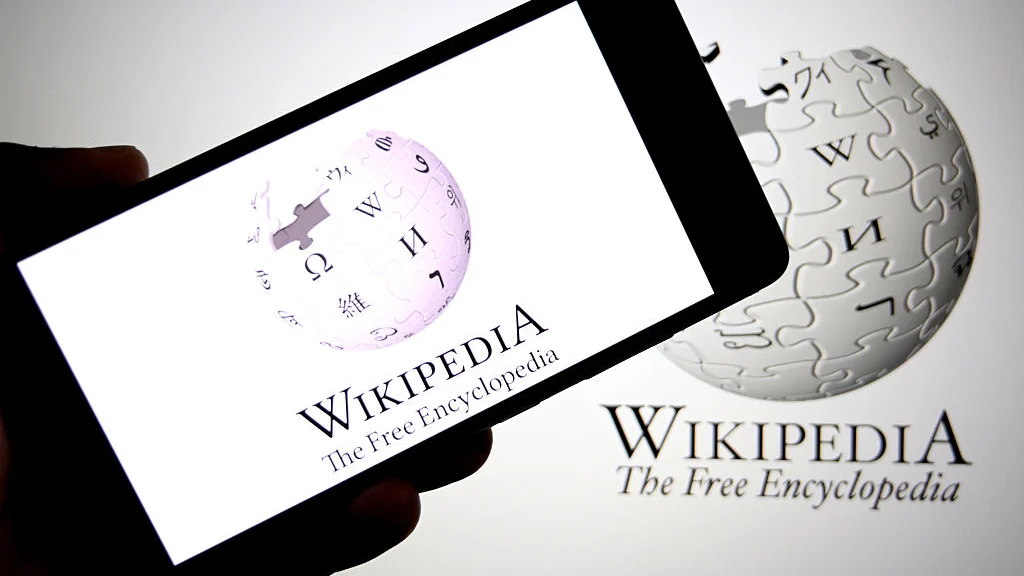Don’t miss out on our latest stories. Add PCMag as a preferred source on Google.
After crunching the numbers to exclude armies of data-scraping AI bots, the Wikimedia Foundation says that between March and August of this year, the number of Wikipedia page views coming from real humans declined by 8% year-on-year.
The nonprofit, which supports Wikipedia, points the finger at the impact of generative AI and social media for the marked decline in how people now seek information online. For example, it highlighted that search engines are now providing answers directly to users—often based on Wikipedia content—and that younger generations are increasingly seeking information on social video platforms rather than the open web.
That doesn’t mean Wikipedia isn’t still a strong presence in the world of online information. Although users may not be visiting Wikipedia directly, the Foundation points out that it remains one of the most popular sources of training data for large language models, such as OpenAI’s ChatGPT and Anthropic’s Claude. This means users are still gaining knowledge from the site—just in a more indirect way. The sheer volume of these data-scraping bots has caused issues for the platform, straining its resources and increasing its hosting costs.
Still, Wikipedia warned against the potential implications of declining visitors, arguing that it could lead to fewer volunteers contributing content and fewer donors supporting its upkeep. It also called on AI firms and digital platforms to be more transparent about where their information comes from and to support their sources. “For people to trust information shared on the internet, platforms should make it clear where the information is sourced from and elevate opportunities to visit and participate in those sources.”
Wikipedia’s recent problems aren’t unique. Many of the world’s most popular online news websites have also complained that AI-generated search engine summaries—such as Google’s AI Overviews—are resulting in fewer clicks and lower revenue.
Recommended by Our Editors
Last month, an organization representing some of the world’s largest publishers, Digital Content Next (DCN), found that median year-over-year referral traffic from Google Search was down 10% in May and June 2025. The nonprofit represents outlets such as The New York Times, Bloomberg, Fox News Digital, and NBC News. Some of the worst-hit publishers reported click-through declines of up to 25%, although Google has denied any role in the trend.
Meanwhile, there is significantly more content online than ever before for Wikipedia to compete with, now that AI-generated writing has entered the mainstream. According to an analysis from SEO firm Graphite, the percentage of AI-generated articles on the web is now slightly above 50%, with the volume of AI-generated articles skyrocketing month by month since ChatGPT debuted in November 2022.
Get Our Best Stories!
Your Daily Dose of Our Top Tech News
Sign up for our What’s New Now newsletter to receive the latest news, best new products, and expert advice from the editors of PCMag.
Sign up for our What’s New Now newsletter to receive the latest news, best new products, and expert advice from the editors of PCMag.
By clicking Sign Me Up, you confirm you are 16+ and agree to our Terms of Use and Privacy Policy.
Thanks for signing up!
Your subscription has been confirmed. Keep an eye on your inbox!
About Our Expert
Experience
I’m a reporter covering weekend news. Before joining PCMag in 2024, I picked up bylines in BBC News, The Guardian, The Times of London, The Daily Beast, Vice, Slate, Fast Company, The Evening Standard, The i, TechRadar, and Decrypt Media.
I’ve been a PC gamer since you had to install games from multiple CD-ROMs by hand. As a reporter, I’m passionate about the intersection of tech and human lives. I’ve covered everything from crypto scandals to the art world, as well as conspiracy theories, UK politics, and Russia and foreign affairs.
Read Full Bio

